Finding the perfect canine companion is a joyous journey, but for many, the dream dog comes with a specific wish list: small size, minimal shedding, and easy care. Whether you’re an allergy sufferer, a meticulous homeowner, or someone living in a smaller space, the prospect of a furry friend who won’t leave a trail of hair or demand constant attention is incredibly appealing. These charming, pint-sized pups prove that you don’t have to sacrifice companionship for cleanliness or convenience.
This comprehensive guide delves into the world of breeds of small dogs that don’t shed that are also known for their relatively low maintenance requirements. We’ll explore what makes a dog truly “easy care” and introduce you to an array of delightful breeds that fit the bill, helping you discover your ideal four-legged family member without the high grooming demands or endless cleanup.
What Makes a Dog “Low Maintenance”?
The term “low maintenance” can mean different things to different people. When it comes to dogs, it generally encompasses several key factors beyond just shedding. Understanding these aspects will help you identify which breeds truly align with your lifestyle.
Minimal Grooming Needs (Beyond Shedding)
While non-shedding is a huge plus, true low maintenance often extends to grooming frequency. Some non-shedding dogs require extensive daily brushing or regular professional grooming to prevent matting. A truly low-maintenance coat requires less frequent brushing and minimal professional upkeep. This can include short, fine coats or wiry coats that might need occasional stripping but don’t demand daily attention.
Manageable Exercise Requirements
Dogs, regardless of size, need exercise. However, low-maintenance breeds typically have moderate to low energy levels, meaning they are content with shorter daily walks or indoor playtime rather than extensive, high-intensity activities. This makes them ideal for apartment living or busy individuals.
Easygoing Temperament and Trainability
A dog with a calm, adaptable, and eager-to-please personality is often easier to manage. Breeds known for their intelligence and good nature tend to be more responsive to training, leading to fewer behavioral challenges. This translates to less time spent on intensive behavioral correction and more time enjoying their companionship.
General Health and Longevity
While not always predictable, some breeds are generally healthier and less prone to chronic conditions. Choosing a breed known for its robust health can reduce veterinary visits and the associated time and financial commitments, contributing to a lower overall maintenance burden.
Top Low Maintenance Small Dogs That Don’t Shed
Based on these criteria, here’s a detailed look at some of the best small dog breeds that offer the dual benefit of minimal shedding and relatively low maintenance.
Affenpinscher
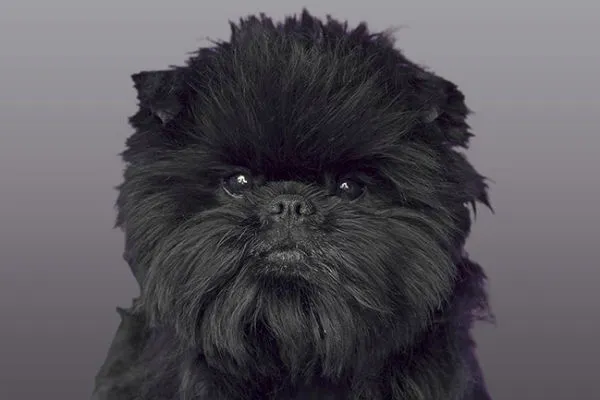 affenpinscher dog with dark, wiry coat and expressive face
affenpinscher dog with dark, wiry coat and expressive face
The Affenpinscher, whose name charmingly translates to “monkey-like terrier,” lives up to its moniker with an intelligent and mischievous demeanor. This Toy breed is surprisingly fearless for its small stature, making an excellent little watchdog without being overly yappy.
Low Maintenance Aspects:
- Shedding: They shed very little, thanks to their wiry coat, which also means almost no “doggy odor.”
- Grooming: A twice-weekly brushing with a slicker brush and comb is usually enough to keep them looking neat. Occasional professional grooming or hand-stripping might be needed to maintain the coat’s texture but is not typically daily.
- Exercise: Their exercise needs are moderate, satisfied with daily walks and indoor play.
- Temperament: Famous for their sense of humor and adaptability, they thrive on companionship but are not overly demanding.
Basenji
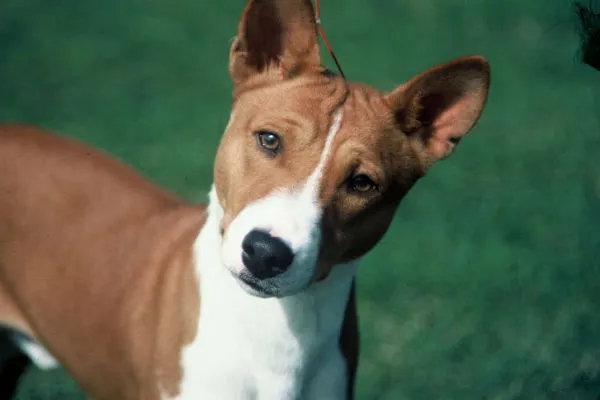 basenji dog sitting alertly, with a short, fine reddish-brown coat
basenji dog sitting alertly, with a short, fine reddish-brown coat
Often dubbed the “barkless dog,” the Basenji is an ideal choice for those who love the elegance of hounds but not their typical shedding and strong scent. Their unique characteristics make them stand out.
Low Maintenance Aspects:
- Shedding: Basenjis shed very minimally, and their short, fine coat is easy to manage.
- Grooming: Beyond the occasional brushing to remove loose hairs, their coat requires little fuss. They are also known for their cat-like grooming habits, keeping themselves remarkably clean.
- Exercise: They are energetic and require daily exercise and playtime to keep them happy and prevent boredom, but their compact size means this can often be achieved with vigorous walks or runs.
- Temperament: Their famously quiet nature makes them excellent small house dogs that don’t shed for apartment living, provided their exercise needs are met. They are independent but affectionate with their families.
Bichon Frise
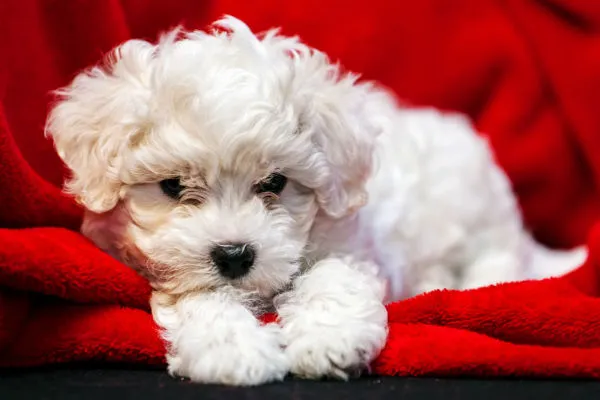 bichon frise dog with fluffy white coat looking playful
bichon frise dog with fluffy white coat looking playful
The Bichon Frise is often at the top of lists for non-shedding breeds, making them an excellent choice for allergy sufferers. Their cheerful disposition is as captivating as their cloud-like appearance.
Low Maintenance Aspects:
- Shedding: Truly a non-shedding breed, they are considered hypoallergenic.
- Grooming (with a caveat): While they don’t shed, their hair grows continuously, requiring frequent grooming, brushing, and occasional baths to maintain their signature powder-puff look. Many owners opt for a shorter “puppy cut” to reduce daily brushing, making them more manageable.
- Exercise: They are playful and affectionate but have moderate exercise needs, easily met with indoor games and short walks.
- Temperament: Their bright and lively personality makes them wonderful companions who adapt well to various living situations.
Bolognese
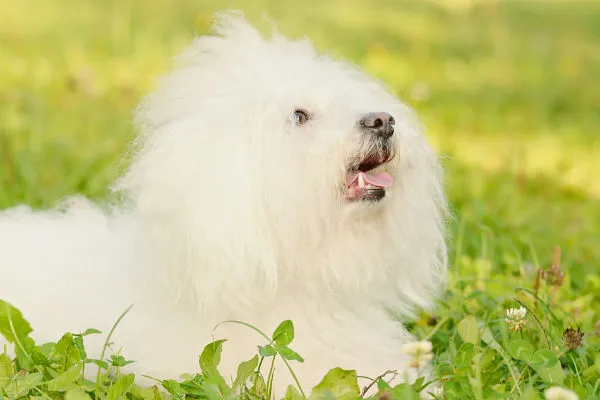 bolognese dog with long, fluffy white coat looking sweet
bolognese dog with long, fluffy white coat looking sweet
A close cousin to the Bichon Frise, the Bolognese shares many desirable traits, including its non-shedding coat. These gentle and devoted lap dogs thrive on human companionship.
Low Maintenance Aspects:
- Shedding: Like the Bichon, their distinctive fluffy coat is hair rather than fur, meaning they do not shed.
- Grooming (with a caveat): Dead hair must be brushed out regularly, and daily grooming is essential to prevent mats and keep them looking their best. Again, a shorter haircut can significantly reduce grooming time.
- Exercise: Bolognese dogs have relatively low exercise needs, content with indoor play and short strolls.
- Temperament: They are known for being calm, sweet, and incredibly devoted, making them excellent companions for those seeking a gentle, quiet presence.
Brussels Griffon
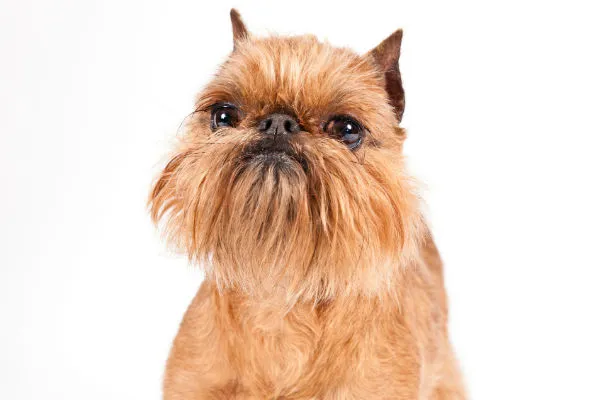 brussels griffon dog with a scruffy, intelligent expression
brussels griffon dog with a scruffy, intelligent expression
Despite their often-comedic and somewhat grumpy appearance, Brussels Griffons are affectionate, lively, and intelligent little dogs. They come in both smooth-coated and rough-coated varieties.
Low Maintenance Aspects:
- Shedding: Both coat types are minimal shedders, contributing to a cleaner home environment.
- Grooming: Regular grooming is beneficial. Rough-coated Griffons require occasional hand-stripping or clipping, while smooth-coated varieties need only weekly brushing.
- Exercise: Their small size means that a daily walk and indoor play are usually enough to satisfy their exercise needs, making them very adaptable to apartment life.
- Temperament: These loyal dogs thrive on close companionship and do best with families who are frequently home, but they are not overly demanding of high-intensity activity.
Chinese Crested
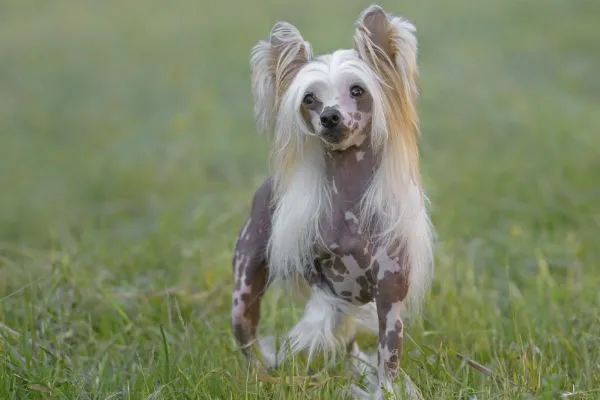 hairless chinese crested dog with tufts of hair on head, tail, and paws
hairless chinese crested dog with tufts of hair on head, tail, and paws
For the ultimate in non-shedding, the Chinese Crested offers a unique solution: hairlessness. This breed comes in two distinct varieties: the hairless and the “powderpuff” (coated).
Low Maintenance Aspects:
- Shedding: Hairless varieties essentially don’t shed. Powderpuffs have a fine coat that sheds very minimally.
- Grooming: Hairless dogs require diligent skin care – protection from sun and cold, and moisturizing to prevent dryness. This can be more time-intensive than brushing a coat. Powderpuffs require regular brushing to keep their fine coat mat-free.
- Exercise: Moderate exercise needs, typically met with daily walks and indoor games.
- Temperament: Devoted and affectionate, they form strong bonds with their owners and are often described as sensitive and playful companions.
Coton De Tulear
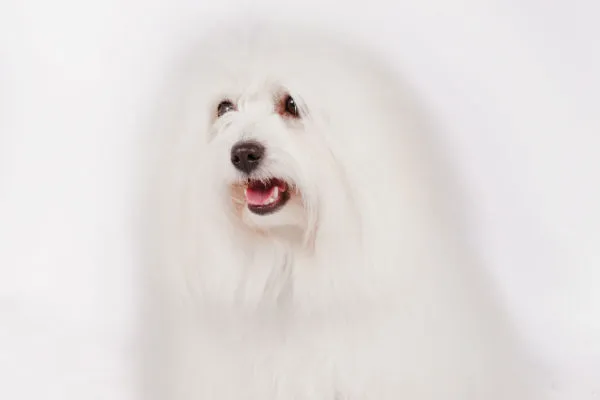 coton de tulear dog with long, soft white cotton-like coat
coton de tulear dog with long, soft white cotton-like coat
The Coton de Tulear, named for its cotton-like coat, is known for its joyful demeanor and hypoallergenic qualities, making it a wonderful family dog.
Low Maintenance Aspects:
- Shedding: Their distinctive long, fluffy coat is considered hypoallergenic and sheds minimally.
- Grooming (with a caveat): While low-shedding, they do require daily grooming to prevent matting and maintain their beautiful coat. Many owners opt for a shorter clip to ease grooming demands.
- Exercise: Cotons are lighthearted and gentle, with moderate exercise needs that can be met through daily walks and indoor play.
- Temperament: Known as “anti-stress dogs,” their charming and cheerful nature makes the grooming effort worthwhile for many.
Havanese
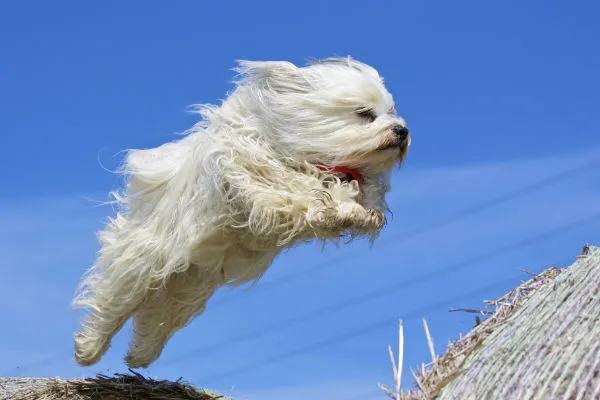 havanese dog with long, flowing brown and white coat looking attentively
havanese dog with long, flowing brown and white coat looking attentively
These native Cuban dogs are cherished for their patented spunky charm and a non-shedding coat that appeals to many prospective owners.
Low Maintenance Aspects:
- Shedding: Havanese coats are non-shedding, which means less time spent lint rolling furniture and clothes.
- Grooming: Their soft, flowing coat requires weekly brushing and regular baths to keep it clean, healthy, and tangle-free. Like other long-haired breeds on this list, a “puppy cut” can simplify daily care.
- Exercise: They are playful and energetic, requiring moderate daily exercise and mental stimulation.
- Temperament: Highly intelligent and sociable, Havanese are adaptable and make excellent intelligent small dogs that don’t shed for a variety of households, including those with children and other pets.
Maltese
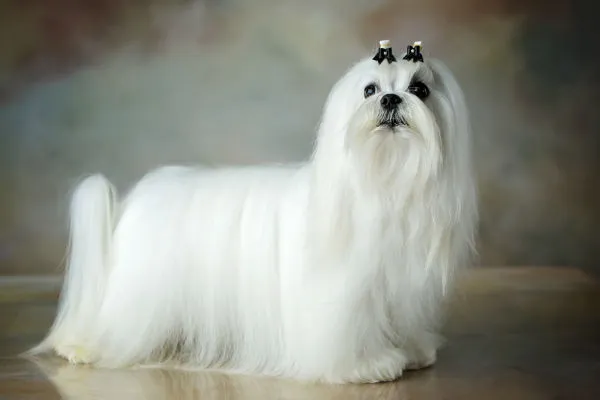 maltese dog with long, silky white coat and topknot
maltese dog with long, silky white coat and topknot
With a history spanning three millennia, the Maltese has charmed humanity with its regal appearance and gentle disposition. This ancient dog of Malta is an exquisite lap dog.
Low Maintenance Aspects:
- Shedding: Their long, silky white coats shed very little, making them a great choice for those sensitive to dog hair.
- Grooming (with a caveat): While low-shedding, their beautiful coats do require regular brushing to prevent mats from forming and occasional baths to keep them sparkling white. A shorter cut is a popular option to simplify maintenance.
- Exercise: Maltese have relatively low exercise needs, content with indoor play and short daily walks.
- Temperament: Gentle, intelligent, and affectionate, they are quintessential companion dogs that thrive on being close to their humans.
Lhasa Apso
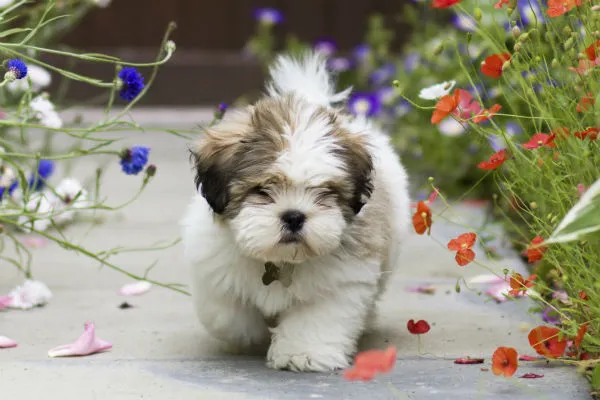 lhasa apso dog with long, flowing golden and white coat
lhasa apso dog with long, flowing golden and white coat
Originating from the monasteries of Tibet, the Lhasa Apso was bred as an indoor sentinel. This small, confident breed makes an excellent and watchful companion.
Low Maintenance Aspects:
- Shedding: Lhasa Apsos are a non-shedding breed, which is a significant advantage for cleanliness.
- Grooming (with a caveat): Their dense, long coats do require maintenance. Many owners opt to keep their Lhasa Apsos in a “puppy cut” to avoid the daily grooming and brushing required for a full-length coat, drastically reducing grooming time.
- Exercise: They enjoy brisk walks and resting in their owner’s lap, demonstrating a balanced energy level.
- Temperament: Calm yet playful, independent yet deeply loyal, they possess a strong personality in a small package.
Miniature Schnauzer
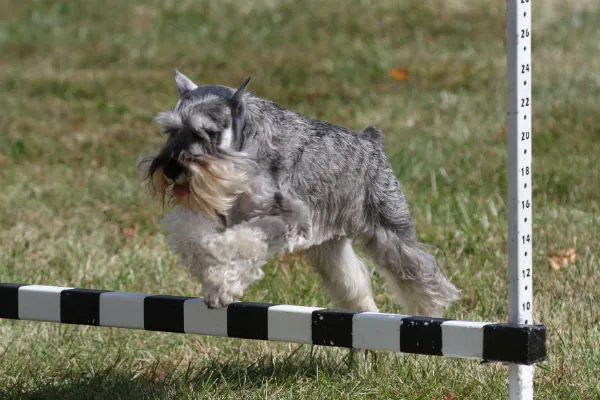 miniature schnauzer dog with distinctive beard and eyebrows
miniature schnauzer dog with distinctive beard and eyebrows
The Miniature Schnauzer is a robust and spirited little dog that strongly resembles its larger Standard Schnauzer cousin. Known for their distinctive beard and eyebrows, they are smart and adaptable.
Low Maintenance Aspects:
- Shedding: This Terrier sheds very little, making them a popular choice for those seeking a tidy home.
- Grooming: To keep Miniature Schnauzers looking their best, weekly brushing and regular professional grooming (clipping or hand-stripping) are recommended. The frequency of professional grooming can be tailored to your preference and the desired look.
- Exercise: They have moderate energy levels and enjoy daily walks and engaging playtime.
- Temperament: Smart, trainable, and cheerful, their adaptability makes them at home in the city or the country, as long as their people are close by.
Poodle (Miniature & Toy)
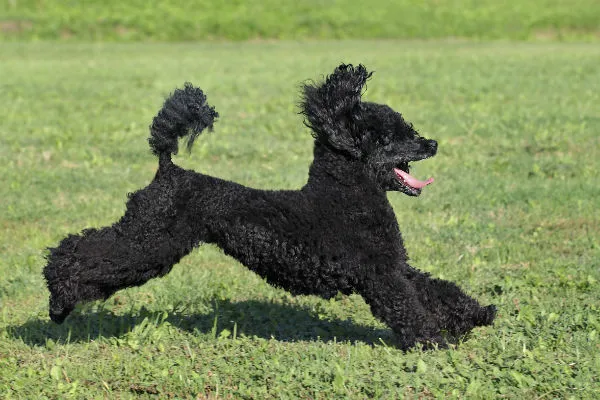 poodle dog with curly coat and classic Poodle clip
poodle dog with curly coat and classic Poodle clip
When people think of small dogs that don’t shed, Poodles often come to mind first, and for good reason. Miniature and Toy Poodles offer the same non-shedding, hypoallergenic qualities as their Standard counterparts, but in a more petite form.
Low Maintenance Aspects:
- Shedding: Poodles are renowned for being non-shedding and hypoallergenic.
- Grooming (with a caveat): Their curly hair grows continuously and requires regular grooming to prevent matting. This can mean frequent professional grooming appointments or diligent home grooming. However, a simpler “kennel clip” can significantly reduce daily brushing time compared to more elaborate show cuts.
- Exercise: All Poodles are active and intelligent, requiring regular exercise and mental stimulation. Their intelligence makes them highly trainable, reducing the “maintenance” of behavioral issues.
- Temperament: Highly intelligent, proud, and eager to please, Poodles excel in training and various dog sports, making them wonderfully engaged companions.
Scottish Terrier
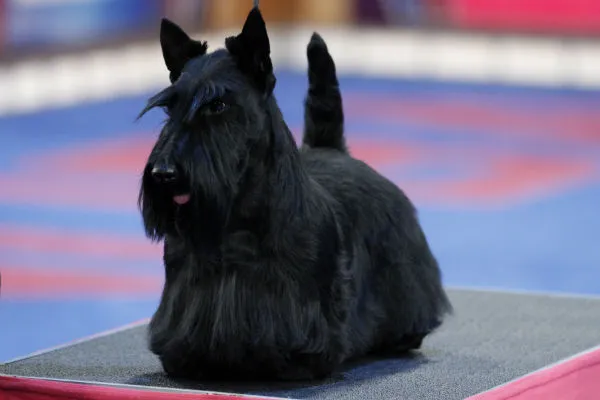 scottish terrier dog with wiry black coat
scottish terrier dog with wiry black coat
The Scottish Terrier, affectionately known as a Scottie, is a small dog with a big personality. Known for their boldness and confidence, they are unmistakable with their wiry coats and distinctive silhouette.
Low Maintenance Aspects:
- Shedding: The Scottie’s wiry, weather-resistant coat sheds very little.
- Grooming: They do need regular brushing to keep their coat healthy and prevent tangles. Occasional hand-stripping (more involved) or clipping (simpler) is needed to maintain the breed’s outline and coat texture.
- Exercise: Scotties have moderate exercise needs, enjoying daily walks and playtime.
- Temperament: Clever and independent, with a strong prey drive, they are loyal and form deep bonds with their families, but their terrier tenacity means consistent training is key.
Shih Tzu
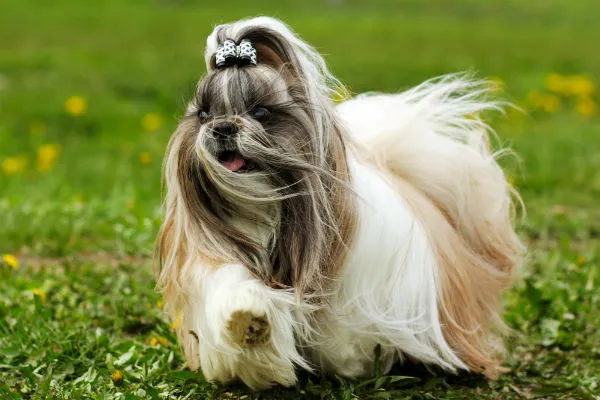 shih tzu dog with long, flowing brown and white coat looking charming
shih tzu dog with long, flowing brown and white coat looking charming
With a long and regal pedigree, the Shih Tzu (“little lion dog”) was the favored house pet of the Tang Dynasty. These sturdy yet lively dogs are bred purely for companionship.
Low Maintenance Aspects:
- Shedding: Their long, silky hair is very low-shedding, making them an excellent choice for allergy sufferers.
- Grooming (with a caveat): While they shed minimally, their flowing coats require daily brushing to prevent mats. Like other long-haired breeds, a shorter “puppy cut” is a popular and very effective way to make grooming more manageable for pet owners.
- Exercise: Shih Tzus were bred to be house pets, and their exercise needs are low to moderate, easily met with indoor play and short walks.
- Temperament: Gentle, trusting, and affectionate, their personality perfectly matches their role as exceptional companions. Their proud carriage, often described as arrogant, only adds to their charm.
West Highland White Terrier
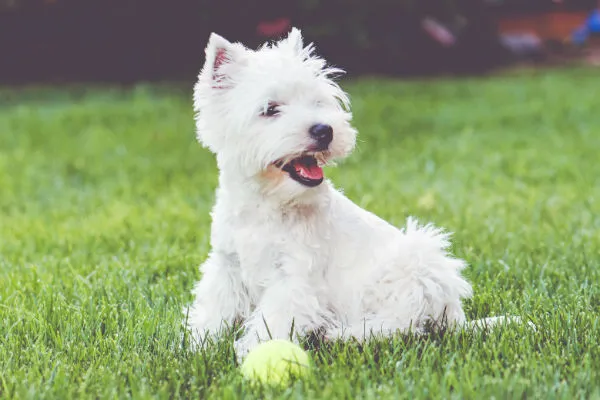 west highland white terrier dog with coarse white hair and alert expression
west highland white terrier dog with coarse white hair and alert expression
Affectionately known as Westies, West Highland White Terriers are robust, intelligent, and entertaining little dogs with a charmingly feisty spirit.
Low Maintenance Aspects:
- Shedding: The Westie’s coarse, white hair sheds very little.
- Grooming: They require regular brushing to keep their coat healthy and occasional professional grooming (hand-stripping or clipping) to maintain their iconic look. A simpler clipped coat significantly reduces maintenance.
- Exercise: Westies are curious dogs with moderate energy levels that enjoy daily walks and interactive play.
- Temperament: Loyal, happy, and highly intelligent, they possess an independent streak common among Terriers, which makes training a fun challenge for engaged owners.
Xoloitzcuintli (Mexican Hairless)
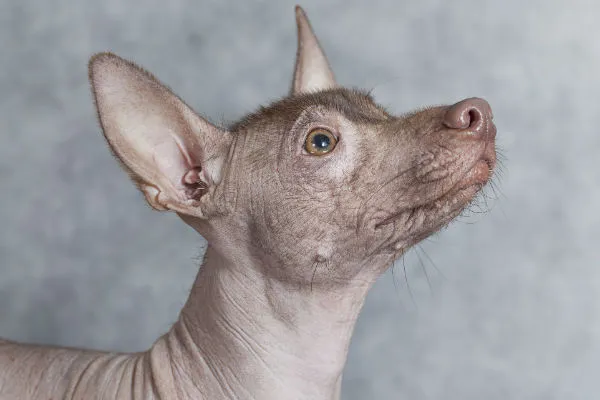 xoloitzcuintli dog, hairless with some hair on head, ears up
xoloitzcuintli dog, hairless with some hair on head, ears up
The Xoloitzcuintli, or Xolo, is an ancient and rare breed known for its distinctive appearance, coming in both hairless and coated varieties.
Low Maintenance Aspects:
- Shedding: Hairless Xolos shed virtually nothing. Coated varieties have a very short, fine coat that sheds minimally.
- Grooming: Hairless varieties require extra attention to skin care – moisturizing, sunscreen, and protection from cold. This can be more involved than coat grooming but eliminates brushing. Coated Xolos need minimal brushing.
- Exercise: While they enjoy physical activities like walks and vigorous play, they are well-known for their tranquil personality around the home, making them adaptable.
- Temperament: Xolos make attentive watchdogs and affectionate companions, forming strong bonds with their families.
Yorkshire Terrier
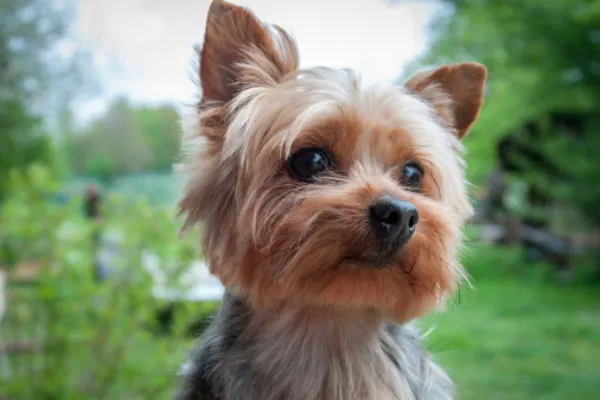 yorkshire terrier dog with long, silky coat and bow
yorkshire terrier dog with long, silky coat and bow
Sprightly, tomboyish, and affectionate, the Yorkshire Terrier, or Yorkie, is a Toy breed full of personality. These spunky lap dogs are consistently among the most popular breeds.
Low Maintenance Aspects:
- Shedding: Yorkshire Terriers do not shed, making them an excellent choice for those seeking a clean home.
- Grooming (with a caveat): Their beautiful, silky coats are stunning when brushed daily. However, their small size makes daily brushing a quick task. Many owners opt for a shorter “puppy cut” to further simplify grooming.
- Exercise: Yorkies are active and enjoy playtime and short walks, but are just as happy snuggling on a lap.
- Temperament: Don’t be fooled by their regal carriage; Yorkies have working-class roots as rat hunters. Today, they are fearless and deeply affectionate companion dogs, offering a vibrant personality in a small package.
Beyond the Breed: Essential Tips for Low-Maintenance Dog Ownership
While choosing a low-maintenance breed is a fantastic first step, true low-maintenance dog ownership also involves responsible care practices. Even the easiest dogs benefit from consistent attention to their overall well-being.
Regular Veterinary Care
Preventative care is the cornerstone of low maintenance. Regular check-ups, vaccinations, and parasite control can prevent serious health issues from developing, saving you time, stress, and costly emergency vet visits down the line. A healthy dog is an easier dog to care for.
Quality Diet
Feeding your dog a high-quality, balanced diet specifically formulated for their age, size, and activity level is crucial. Good nutrition supports a healthy coat, strong immune system, and optimal energy levels, all of which contribute to fewer health problems and a happier, more manageable pet.
Consistent Training and Socialization
A well-trained dog is a joy to live with. Consistent training from a young age establishes good habits and prevents behavioral problems that can quickly turn a “low-maintenance” dog into a high-stress one. Proper socialization ensures your dog is comfortable and well-behaved around new people, places, and other animals. This is particularly important for small companion dogs that often go everywhere with their owners.
Mental Stimulation
Even low-energy dogs need mental enrichment. Puzzle toys, training sessions, and interactive games can prevent boredom, which often leads to destructive behaviors that require significant “maintenance” to resolve. A mentally stimulated dog is typically a calmer and more content companion.
Conclusion
Finding a small dog that doesn’t shed and is relatively low maintenance is a perfectly achievable goal. From the mischievous Affenpinscher to the dignified Shih Tzu, a diverse array of breeds offers minimal hair cleanup and manageable care requirements, making them ideal companions for various lifestyles.
Remember, “low maintenance” doesn’t mean “no maintenance.” Every dog requires love, attention, proper nutrition, and veterinary care. By carefully researching each breed’s specific grooming needs, exercise demands, and temperament, you can find a companion that perfectly matches your lifestyle and brings years of joy without excessive fuss. Choose wisely, and you’ll welcome a wonderful, easy-to-care-for furry friend into your home.
